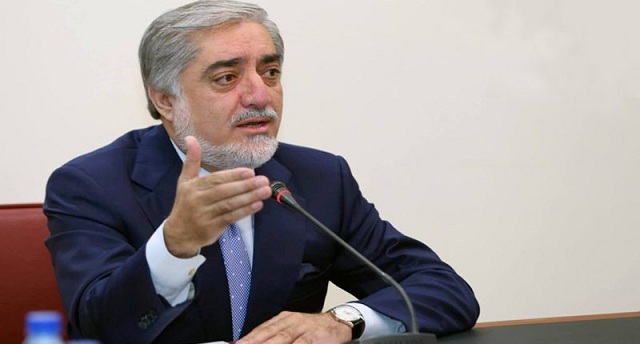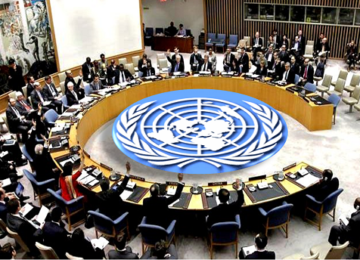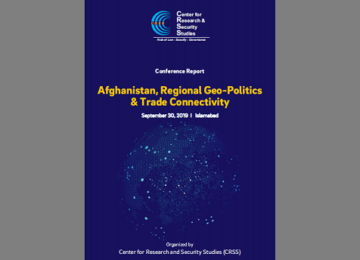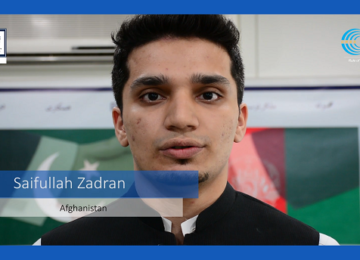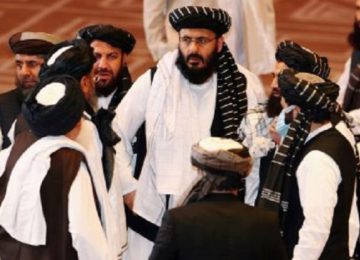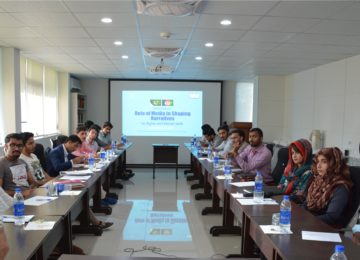Declaration calls for resumption of bilateral trade talks, revisiting of visa regime and organisation of short exchange programmes.
Members of Pakistani and Afghan parliament, retired military officials, ambassadors, traders, members of civil society and media persons wrapped up unofficial dialogue in Kabul on Sunday, urging both governments to continue the course of engagement.
A joint declaration of policy recommendations issued at the end of three-day interaction welcomed the recent exchange of visits between Kabul and Islamabad, particularly consultations between directors general of military operations (DGMOs). They hoped that the current restraint on both sides will augur well for the bilateral relations.
The Track-II/1.5 Beyond Boundaries dialogue was organised by the Islamabad-based Center for Research and Security Studies (CRSS) and its Afghan counterpart, Organisation for Economic Studies and Peace (OESP).
The first meeting of Pakistan-Afghanistan Joint Committee (PAJC) of CRSS and OESP welcomed the recent proposals shared between Pakistan and Afghanistan, especially the start of the process of various working groups to address issues affecting their bilateral relations.
In addition, the PAJC held detailed discussions on the current status of bilateral relations, including issues of peace and security, refugees, media cooperation, movement of goods and people across the two countries, facilitation of trade, visa restrictions and educational scholarships in particular.
The PAJC strongly called upon on both the governments to convene meeting of the Afghan-Pakistan Transit Trade Coordinating Authority (APTTCA) as soon as possible to address pending transit trade issues. It was pointed out by several participants that Afghanistan has not called the meeting for 18 months despite Pakistan’s repeated requests.
The participants called for immediate resumption of the bilateral trade talks, including recently imposed regulatory taxes on Afghan exports to Pakistan.
The PAJC pressed Pakistan to expedite and facilitate implementation of the scholarship programmes for Afghan students. The Track-II recommendations requested the Afghan government to facilitate completion of Pakistan-funded projects in Afghanistan and provide all necessary support, including timely tax waivers by the Afghan government for equipment being imported for these projects.
The recommendations pushed both the governments to revisit the visa regime and facilitate and improve visa-related issues from application submission to the issuance of the visa itself. Both countries should also introduce special visa regime for businessmen, parliamentarians, media representatives, patients and attendants, the participants stressed.
In order to improve bilateral relations, it was recommended that youth exchange programmes be organised.
Journalists’ short exchange programmes must also be organised for better understanding of each other’s perspective, the declaration said.
Cultural programmes may also be organised to facilitate participation of prominent singers.
It was announced in the meeting that the Forum for International Relations Development, a UK-based conflict resolution think tank, will offer scholarships for tuition fees only to five Pakistani and five Afghan students for undergraduate and post graduate British qualifications through School of Economics and Law (SOEL), UK.
The CRSS and OESP will recommend and lead the process, while the final selection will be done by SOEL, UK. The applicants in both countries must meet the UK visa and immigration requirements.
Afghan Chief Executive Dr Abdullah Abdullah told the participants that true fight against terrorism can pave the way for trust building between the two countries. He said Afghanistan always underscored the need for improved relations among the neighbouring countries, which should be based on mutual respect, good neighbourhood and sincere cooperation.
The author Tahir Khan is a member of the visiting delegation of CRSS Beyond Boundaries Phase III from Pakistan. This piece originally appeared in Daily Times on December 18, 2017.
© Center for Research and Security Studies (CRSS) and Afghan Studies Center (ASC), Islamabad.



